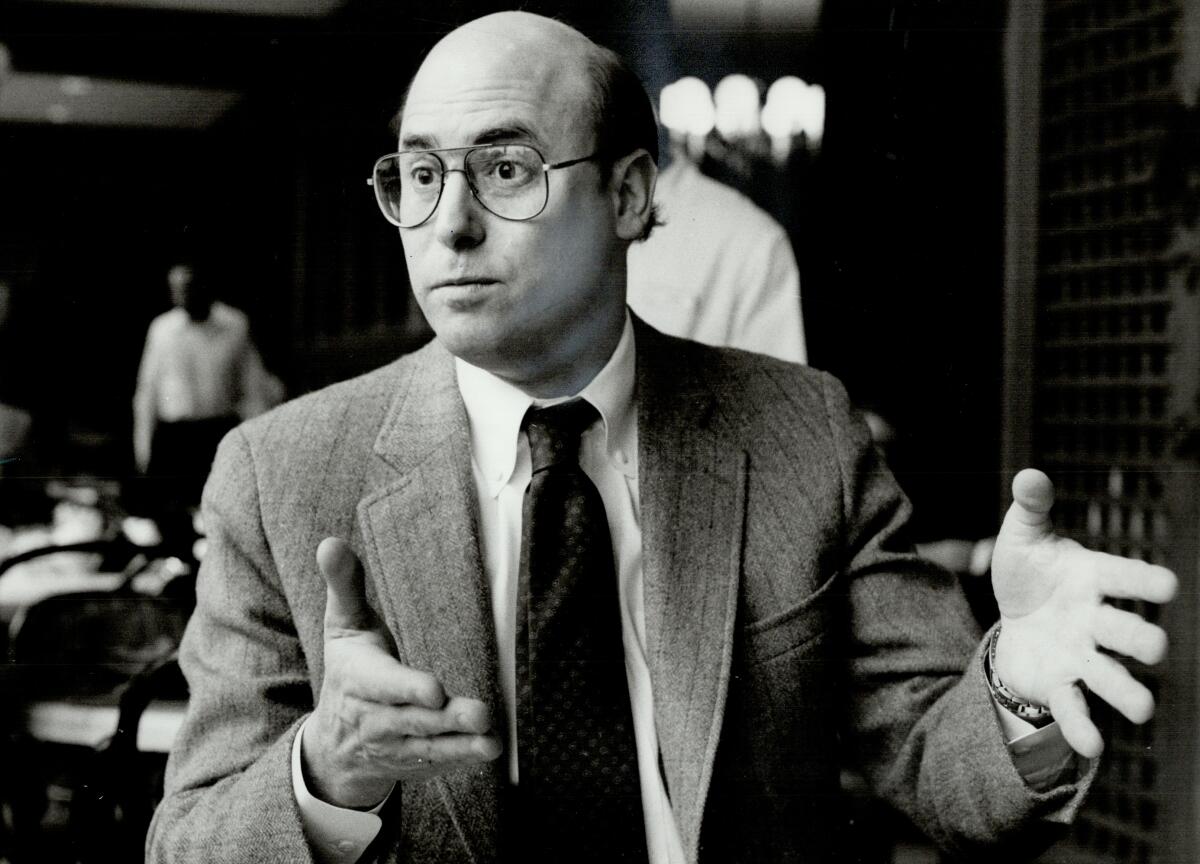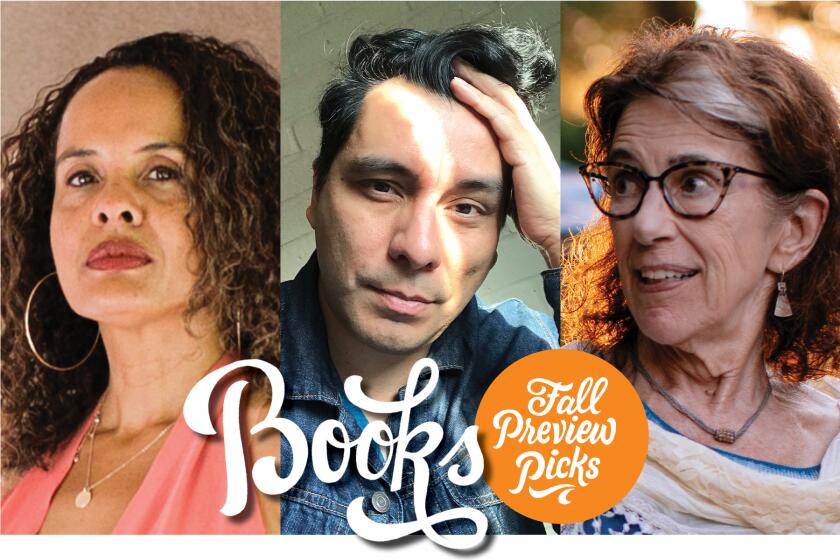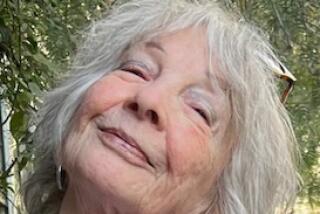Peter Straub, influential horror author and Stephen King collaborator, dies at 79

- Share via
Horror writer Peter Straub, who cemented his place in the genre with works including “Ghost Story,” “The Talisman” and “A Dark Matter,” has died. He was 79. Straub’s son, Benjamin, told The Times he died “surrounded by love ones” in Manhattan on Sunday from complications due to a hip injury.
Straub’s daughter, novelist Emma Straub, posted her memories on Instagram on Tuesday. “Peter Francis Straub, the smartest and most fun person in every room he was ever in, 3/2/43 - 9/4/22,” she wrote in the caption. “How lucky we were. There aren’t enough words in the world.”
On social media she also shared photos of her parents’ wedding, her father with loved ones as well as his stint on “One Life to Live.” Also mourning Straub on social media was collaborator Stephen King, with whom he wrote “The Talisman” in 1984. Their novel is being adapted by the Duffer Brothers into a Netflix series.
“It’s a sad day because my good friend and amazingly talented colleague and collaborator, Peter Straub, has passed away,” the author of “The Shining” wrote. “Working with him was one of the great joys of my creative life.”
Straub was born on March 2, 1943, in Milwaukee, Wis. to a salesman and a nurse. According to his website biography, Straub taught himself how to read and spent his childhood immersed in fiction, reading about the exploits of pirates, soldiers, spies and other adventurers. Before long, he was coming up with stories of his own.
When he was in first grade, Straub was hit by a car and spent several months in the hospital, enduring multiple operations. For a time, he needed a wheelchair and was only intermittently in school.
After his near-death experience, Straub attended the Milwaukee Country Day School on scholarship, followed by the University of Wisconsin, from which he graduated with an honors degree in English in 1965. A year later, he received his master’s degree at Columbia University and married Susan Bitker. In 1969 the couple moved to Dublin, where he pursued his doctorate and published the poetry collections “Ishmael” and “Open Air,” followed by his first novel, “Marriages.”
In his consideration of two volumes of American horror stories, our columnist finds that quotes take on a life of their own.
The family spent several more years in London, where Straub worked closely with poets Ann Lauterbach and Thomas Tessier. At the suggestion of his agent, he also decided to try writing gothic fiction, beginning in 1975 with “Julia,” which was adapted into a 1977 film starring Mia Farrow. In addition to finding a more lucrative niche than poetry, Straub had found a way to exorcise the trauma of his childhood accident. “Once I decided to try to write horror books,” he told a reporter in 2004, “I didn’t have nightmares anymore. My life improved strikingly.”
Straub welcomed his first child, Benjamin, in 1979, the same year he published ‘’Ghost Story,” which became a bestseller (and a 1981 film starring Fred Astaire). Shortly afterward, the family moved to the neighborhood that would become their permanent home: the Upper West Side of Manhattan. Emma was born the following year.
The 1980s brought Straub to the height of his success and fame, publishing “Shadowland,” “Koko” and his King collaboration, “The Talisman.” Though it has become a favorite in the horror genre, at the time the book garnered mix reviews. People magazine placed it at No. 1 on its yearly “Worst of Pages” list, while Twilight Zone magazine called it the year’s best novel. In The Times, Dale Pollock called “The Talisman” both “gripping” and “immensely satisfying,” albeit “long-winded” with a “predictable” ending.
The following decade brought “The Hellfire Club” and “Mr. X.” Several books later, Straub’s final novel was “A Dark Matter,” released in 2010.
In midlife, several characters cope with the horrific consequences of an occult ritual in which they participated long ago.
“Straub’s strength as a novelist is that he works sidewise to reality,” Dale Bailey wrote in a Times review of “A Dark Matter” in 2014. “Like the gothic fiction that inspires him, his worlds abound with coincidence and images of surreal power.”
Straub published a collection of short stories, “Interior Darkness,” in 2016, followed by the 2017 novella “The Process (Is a Process All Its Own).”
Emma Straub‘s most recent novel, “This Time Tomorrow,” centered on a woman’s relationship with her dying father, a man not unlike Peter Straub. As she told The Cut and other publications, the elder Straub was hospitalized with heart ailments while she worked on the book. He joked to his daughter that she should produce a work about “a woman who visits her dad in the hospital.”
How Emma Straub got to know Los Angeles for ‘Laura Lamont’
Earlier this year, she told the Orange County Register her father’s surviving to see the book published felt “miraculous.” But she didn’t feel strange portraying a father dying in fiction. “If there’s one thing I know for sure, it’s that he is going to die someday; he’s not going to escape that. Neither are any of the rest of us.”
Benjamin Straub told The Times, of his father’s death, “His corporeal body eventually failed him. Sadly, it was unable to keep up with his innate knowledge of how to overcome [the] next hurdle placed in front of him. He was uncommonly strong, both physically and emotionally.”
In the final words of his online biography, Straub mused about what had been keeping him busy and fulfilled: yoga, his marriage, his children and more.
“One lives through so much, and after a while things sort of settle down, and most of what one wishes for is a long calm continuance,” Straub wrote, “with work and love, friendship and art, clear-headedness, laughter, and an unbroken awareness of how fragile and threatened any such blessedness must be.”
The latest from Ling Ma, Yiyun Li, Russell Banks and Namwali Serpell as well as exciting newcomers round out our critics’ most anticipated fall books.
More to Read
Start your day right
Sign up for Essential California for the L.A. Times biggest news, features and recommendations in your inbox six days a week.
You may occasionally receive promotional content from the Los Angeles Times.









